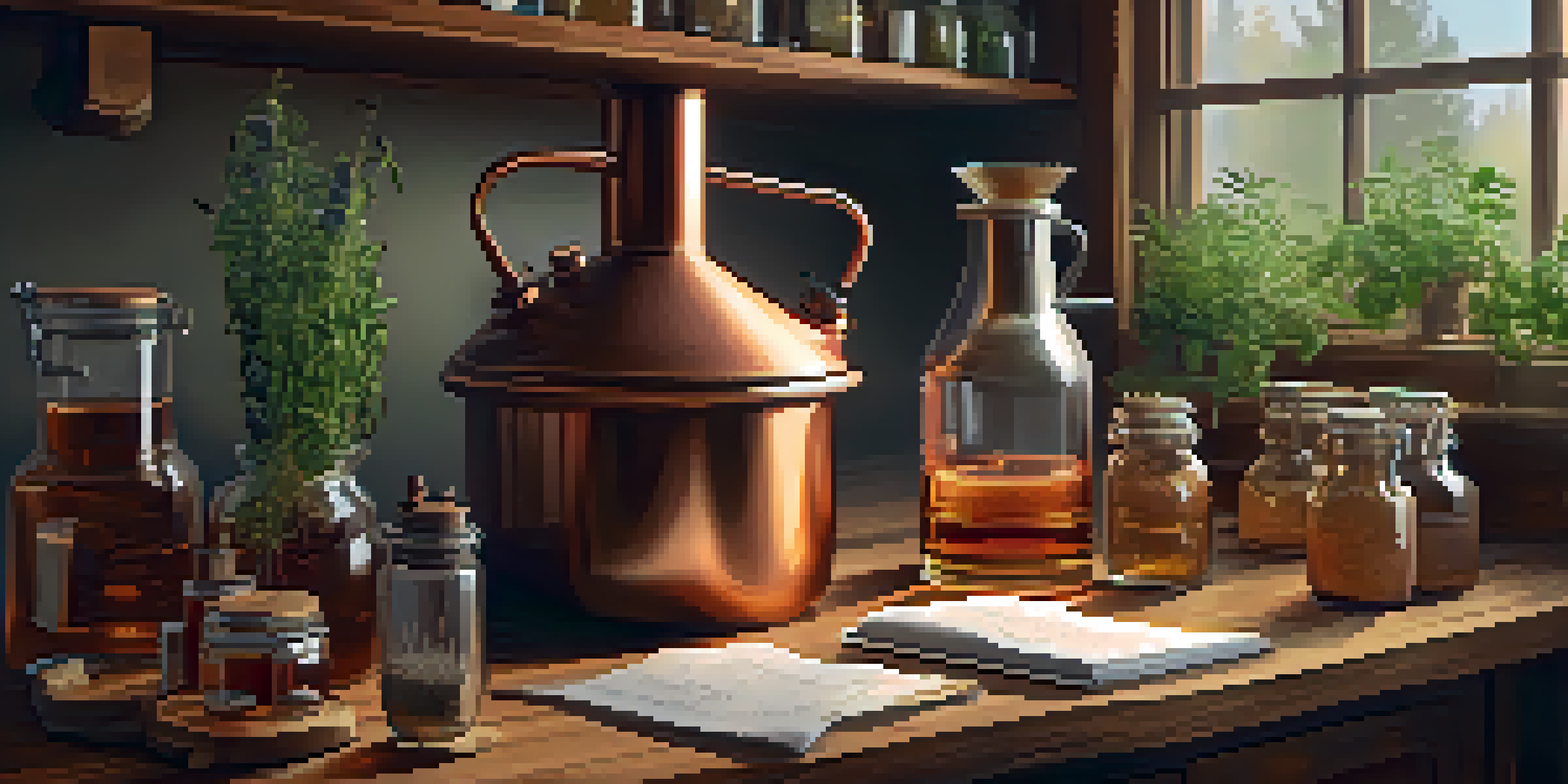Legal Considerations for Home Distilling in Your Area

Understanding Home Distilling Regulations
Home distilling is a fascinating hobby that many enthusiasts enjoy. However, it's crucial to understand the legal landscape surrounding it. Regulations can vary significantly by state or country, so knowing the rules in your area is the first step to enjoying this craft safely and legally.
Federal Laws on Distilling Spirits
In the United States, federal law requires that any distilling of spirits must be done with a permit, regardless of the intended use, including personal consumption. The Alcohol and Tobacco Tax and Trade Bureau (TTB) oversees these permits. Without proper licensing, home distillers could face hefty fines or even criminal charges.
Understand Distilling Regulations
Knowing the legal landscape of home distilling is crucial, as laws vary by federal, state, and local jurisdictions.
State-Specific Distilling Laws to Consider
While federal laws provide a framework, state laws can impose additional restrictions. Some states may allow home distilling under certain conditions, while others may prohibit it altogether. It's essential to check your local regulations to ensure compliance and avoid potential legal issues.
Potential Health and Safety Risks
Distilling alcohol at home isn't just about legality; it also involves health and safety risks. Improper distillation can lead to the production of harmful substances like methanol, which can cause serious health issues. Understanding these risks is vital to ensure not only your safety but also that of anyone consuming your homemade spirits.
Health Risks of Home Distilling
Improper distillation can lead to the production of harmful substances, making awareness of health risks essential.
Zoning Laws and Local Ordinances
In addition to state and federal regulations, local zoning laws can impact your ability to distill at home. Certain residential areas may have restrictions on manufacturing activities, including distilling. Make sure to check with your local government for any ordinances that might affect your home distilling plans.
Permits and Licenses for Home Distillers
If you plan to pursue home distilling legally, obtaining the necessary permits and licenses is crucial. The application process can be lengthy and may require fees, so it’s important to be patient and prepared. Having these documents not only keeps you compliant but also helps legitimize your passion for distilling.
Importance of Permits and Records
Obtaining the necessary permits and keeping detailed records are vital for compliance and safety in home distilling.
The Importance of Record Keeping
Good record-keeping practices are essential for any home distiller. Keeping detailed logs of your distilling process, ingredients, and production quantities can help you stay compliant with regulations. Additionally, these records can be invaluable if you ever need to prove your practices to authorities.
Finding Resources and Legal Guidance
Navigating the legal landscape of home distilling can be daunting, but there are resources available. Local distilling clubs, online forums, and legal professionals specializing in alcohol law can provide guidance. Engaging with these communities can help you stay informed about the latest regulations and best practices in home distilling.